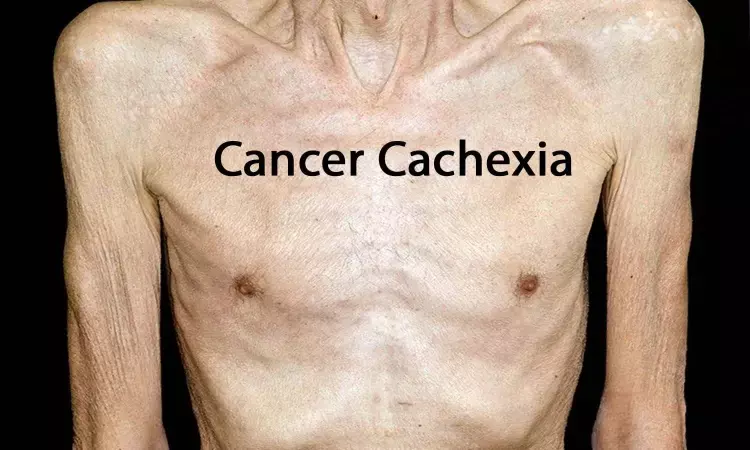- Home
- Medical news & Guidelines
- Anesthesiology
- Cardiology and CTVS
- Critical Care
- Dentistry
- Dermatology
- Diabetes and Endocrinology
- ENT
- Gastroenterology
- Medicine
- Nephrology
- Neurology
- Obstretics-Gynaecology
- Oncology
- Ophthalmology
- Orthopaedics
- Pediatrics-Neonatology
- Psychiatry
- Pulmonology
- Radiology
- Surgery
- Urology
- Laboratory Medicine
- Diet
- Nursing
- Paramedical
- Physiotherapy
- Health news
- Fact Check
- Bone Health Fact Check
- Brain Health Fact Check
- Cancer Related Fact Check
- Child Care Fact Check
- Dental and oral health fact check
- Diabetes and metabolic health fact check
- Diet and Nutrition Fact Check
- Eye and ENT Care Fact Check
- Fitness fact check
- Gut health fact check
- Heart health fact check
- Kidney health fact check
- Medical education fact check
- Men's health fact check
- Respiratory fact check
- Skin and hair care fact check
- Vaccine and Immunization fact check
- Women's health fact check
- AYUSH
- State News
- Andaman and Nicobar Islands
- Andhra Pradesh
- Arunachal Pradesh
- Assam
- Bihar
- Chandigarh
- Chattisgarh
- Dadra and Nagar Haveli
- Daman and Diu
- Delhi
- Goa
- Gujarat
- Haryana
- Himachal Pradesh
- Jammu & Kashmir
- Jharkhand
- Karnataka
- Kerala
- Ladakh
- Lakshadweep
- Madhya Pradesh
- Maharashtra
- Manipur
- Meghalaya
- Mizoram
- Nagaland
- Odisha
- Puducherry
- Punjab
- Rajasthan
- Sikkim
- Tamil Nadu
- Telangana
- Tripura
- Uttar Pradesh
- Uttrakhand
- West Bengal
- Medical Education
- Industry
GDF-15 inhibition with ponsegromab improved cancer cachexia symptoms: NEJM

A new study by John Groarke and team found the cachexia decreased when ponsegromab was administered at escalating dosages to patients with cancer cachexia and raised circulating growth differentiation factor 15 (GDF-15) levels. The findings of this study were published in the New England Journal of Medicine.
One frequent cancer consequence that is linked to a higher risk of mortality is cachexia. In cancer cachexia, there is an increase in the amount of the circulating cytokine growth differentiation factor 15. Ponsegromab is a humanized monoclonal antibody that inhibits GDF-15 and was linked to better weight, appetite, and physical activity in addition to decreased serum GDF-15 levels.
And so, individuals with cancer cachexia and a high serum GDF-15 level (≥1500 pg per milliliter) were randomized in a phase 2 randomized, double-blind, 12-week trial in a 1:1:1:1 ratio to either receive ponsegromab at a dose of 100 mg, 200 mg, or 400 mg subcutaneously every 4 weeks for three doses, or receive a placebo. The main outcome measure at 12 weeks was the shift in body weight from the baseline. Digital assessments of physical activity, safety, and symptoms of hunger and cachexia were important secondary end goals.
The randomization was performed on a total of 187 subjects. Of these individuals, colorectal cancer accounted for 29%, pancreatic cancer for 32%, and non-small-cell lung cancer for 40%. At 12 weeks, there was a significant difference in weight increase between the ponsegromab groups and the placebo group. The median between-group difference was 1.22 kg for the 100-mg group, 1.92 kg for the 200-mg group, and 2.81 kg for the 400-mg group. Measures of hunger, symptoms of cachexia, and physical activity all showed improvements in the 400-mg ponsegromab group when compared to placebo. 70% of the patients in the ponsegromab group and 80% of the individuals in the placebo group had adverse events of any kind. Overall, the inhibition of GDF-15 with ponsegromab led to enhanced gain in weight and general activity level and lowered cachexia symptoms among patients with cancer cachexia and raised GDF-15 levels.
Source:
Groarke, J. D., Crawford, J., Collins, S. M., Lubaczewski, S., Roeland, E. J., Naito, T., Hendifar, A. E., Fallon, M., Takayama, K., Asmis, T., Dunne, R. F., Karahanoglu, I., Northcott, C. A., Harrington, M. A., Rossulek, M., Qiu, R., & Saxena, A. R. (2024). Ponsegromab for the Treatment of Cancer Cachexia. In New England Journal of Medicine. Massachusetts Medical Society. https://doi.org/10.1056/nejmoa2409515
Neuroscience Masters graduate
Jacinthlyn Sylvia, a Neuroscience Master's graduate from Chennai has worked extensively in deciphering the neurobiology of cognition and motor control in aging. She also has spread-out exposure to Neurosurgery from her Bachelor’s. She is currently involved in active Neuro-Oncology research. She is an upcoming neuroscientist with a fiery passion for writing. Her news cover at Medical Dialogues feature recent discoveries and updates from the healthcare and biomedical research fields. She can be reached at editorial@medicaldialogues.in
Dr Kamal Kant Kohli-MBBS, DTCD- a chest specialist with more than 30 years of practice and a flair for writing clinical articles, Dr Kamal Kant Kohli joined Medical Dialogues as a Chief Editor of Medical News. Besides writing articles, as an editor, he proofreads and verifies all the medical content published on Medical Dialogues including those coming from journals, studies,medical conferences,guidelines etc. Email: drkohli@medicaldialogues.in. Contact no. 011-43720751


